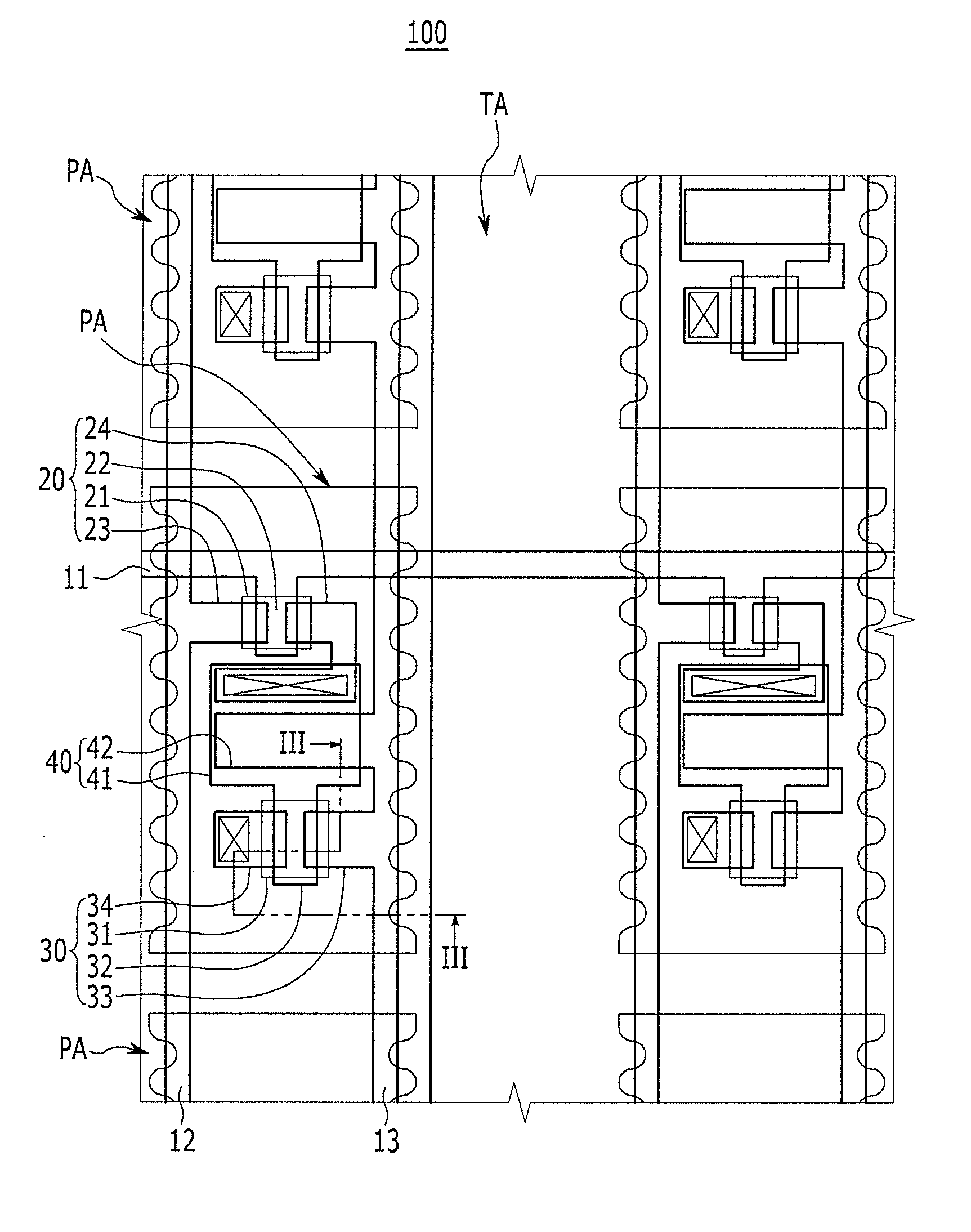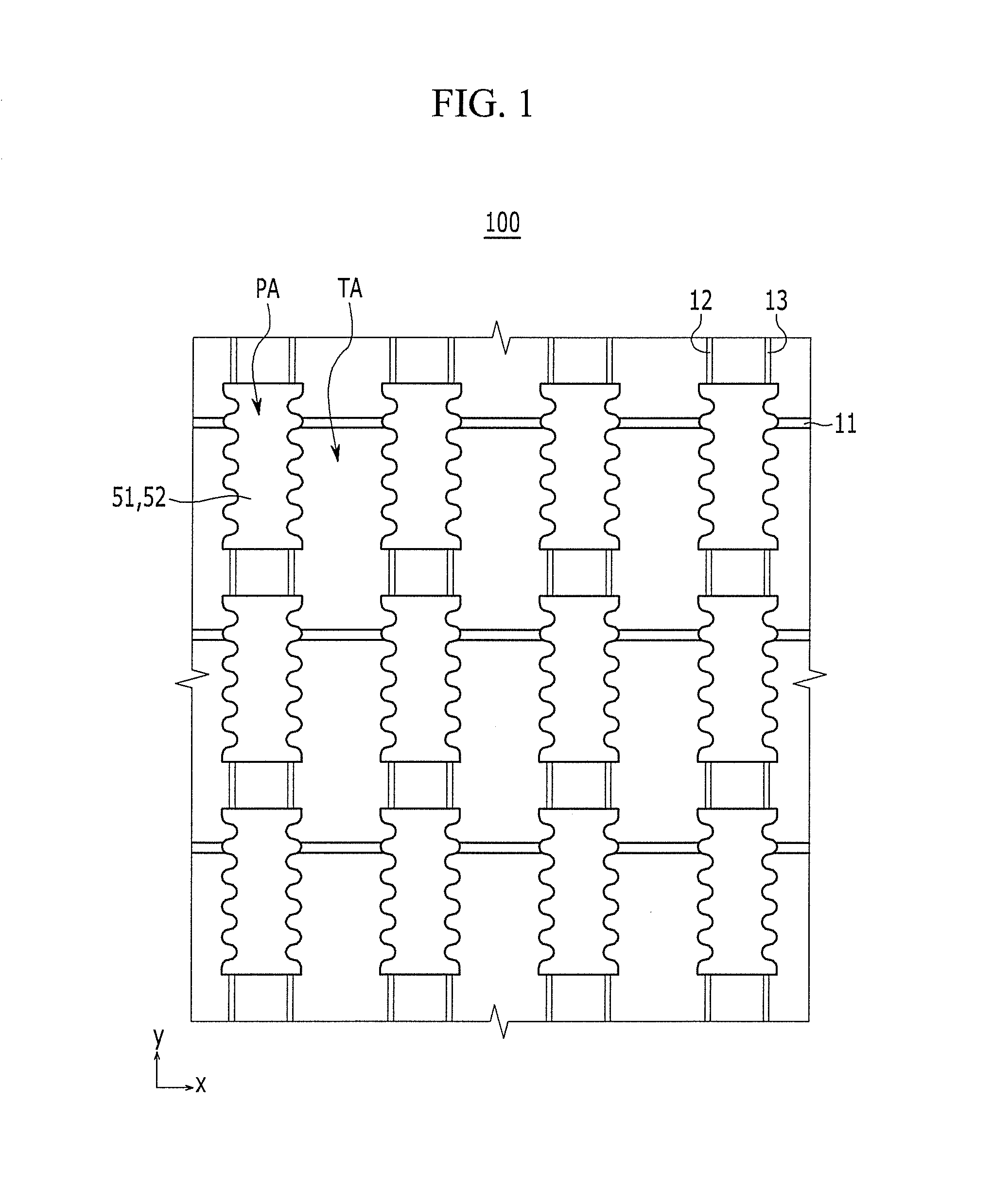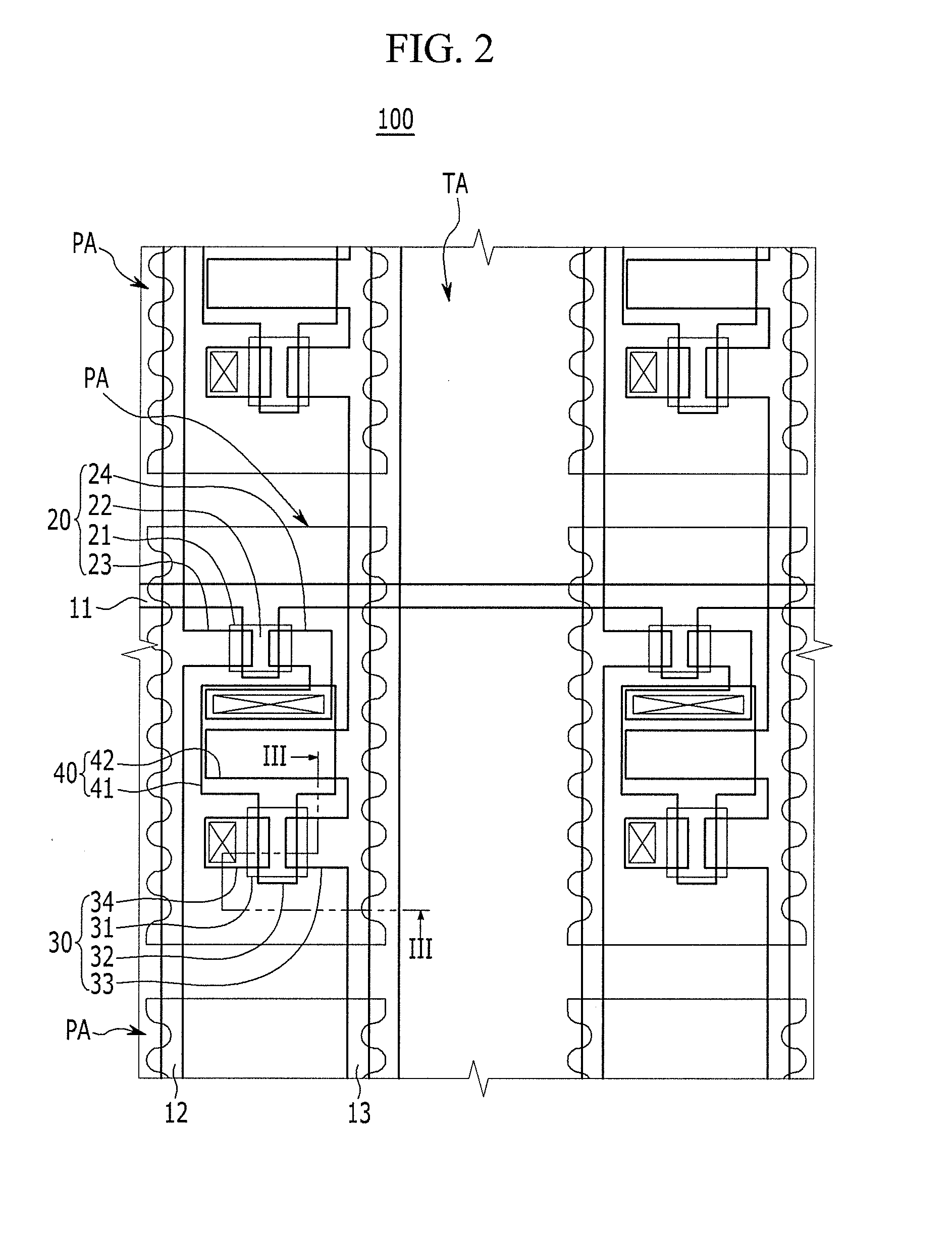Display device
- Summary
- Abstract
- Description
- Claims
- Application Information
AI Technical Summary
Benefits of technology
Problems solved by technology
Method used
Image
Examples
experimental example 1
Comparative Example
[0102]In a display device of Experimental Example 1, a transparent area has a single horizontal width, and the horizontal width of a pixel area in this experiment is 102 μm and the horizontal width of the transparent area is 50 μm.
[0103]FIG. 10 is a graph showing a simulation result of a diffracted image measured with the display device of Experimental Example 1.
[0104]In the graph of FIG. 10, the vertical axis denotes a brightness ratio of the diffracted image, which is a ratio of brightness I of a diffracted image with respect to brightness IO of an image (for convenience, referred to as “one-transmission image”) that is transmitted without being diffracted. The horizontal axis in the graph denotes a relative distance of the diffracted image, which is a distance of the diffracted image with respect to the one-transmission image. Here, the zero point in the graph indicates a location of the one-transmission image. In the graph, H_R, H_G, and H_B respectively repre...
experimental example 2
Exemplary Embodiment 1
[0106]FIG. 11 is an enlarged view of portions of a pixel area and a transparent area of a display device of Experimental Example 2.
[0107]In the display device of Experimental Example 2, a long side of the pixel area PA is shaped with alternately arranged semi-circular recess portions 54 and semi-circular convex portions 55. The radius r of the semi-circle applied in the experiment is 10 μm, and the maximum horizontal width s1 and the minimum horizontal width s2 of a transparent area TA are 70 μm and 30 μm, respectively.
[0108]FIG. 12 is a graph showing a simulation result of a diffracted image measured with the display device of Experimental Example 2.
[0109]Referring to FIG. 12, it is observed that a diffracted image having a brightness of less than 6% with respect to the brightness of the one-transmission image appears at a location within 2.5 cm from the zero point on the horizontal axis when an observer is located 1 m in front of the display device of Experim...
experimental example 3
Exemplary Embodiment 2
[0110]FIG. 13 is an enlarged view of a portion of a pixel area in a display device of Experimental Example 3.
[0111]In the display device of Experimental Example 3, a long side of a pixel area PA is shaped with alternately arranged rectangular recess portion 541 and rectangular convex portion 551. A horizontal width a and a vertical width b of the recess portion 541 and the convex portion 551 applied in the experiment are respectively 20 μm, and the maximum horizontal width s3 and the minimum horizontal width s4 of a transparent area TA are 70 μm and 30 μm, respectively.
[0112]FIG. 14 is a graph showing a simulation result of a diffracted image measured with a display device of Experimental Example 3.
[0113]Referring to FIG. 14, it is observed that a diffracted image having a brightness of less than 8% with respect to the brightness of the one-transmission image appears at a location within 2.5 cm from the zero point on the horizontal axis when an observer is loca...
PUM
 Login to View More
Login to View More Abstract
Description
Claims
Application Information
 Login to View More
Login to View More - R&D
- Intellectual Property
- Life Sciences
- Materials
- Tech Scout
- Unparalleled Data Quality
- Higher Quality Content
- 60% Fewer Hallucinations
Browse by: Latest US Patents, China's latest patents, Technical Efficacy Thesaurus, Application Domain, Technology Topic, Popular Technical Reports.
© 2025 PatSnap. All rights reserved.Legal|Privacy policy|Modern Slavery Act Transparency Statement|Sitemap|About US| Contact US: help@patsnap.com



